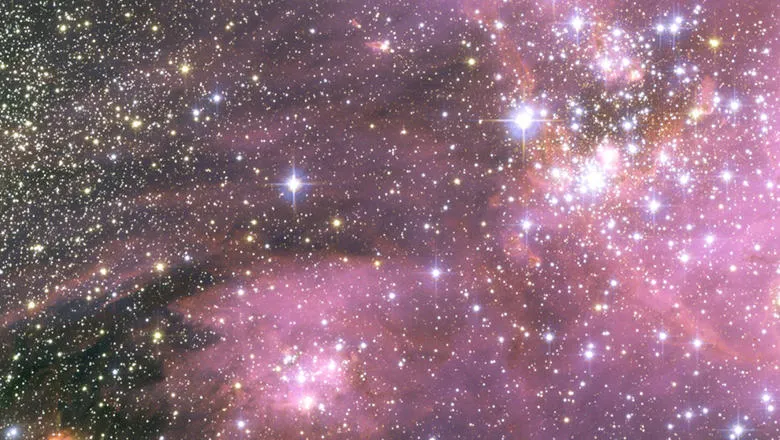Our research has shown that the observed faster expansion of the universe could be connected with the mechanism which generates neutrino masses. Intriguingly, we have shown that these two open - and apparently disconnected - problems in Cosmology and Particle physics could be related. Confirmation that the universe is expanding faster than predicted by the Standard Cosmological framework will represent a major discovery in Cosmology. At the same time, the fact that neutrinos have a mass cannot be explained by the Standard Model of Particle Physics.
21 July 2020
Uncertainty in the expansion of the universe
Research from King’s College London Department of Physics has been selected as the lead story for The European Physical Journal C .

Led by Research Associate Miguel Escudero Abenza, King’s research builds on recent data which suggests that the universe is expanding faster than predicted by the Standard Model of Cosmology. In their latest paper, the team suggest that this expansion may be connected to the neutrino mass generation mechanism — which remains a fundamental open issue of the Standard Model of Particle Physics.
Current knowledge of the universe’s expansion stems from Edwin Hubble’s 1929 study of Cepheid variable stars, which led to the discovery that galaxies are receding from us at a velocity proportional to their distance. This discovery of the expansion of the universe had profound implications for the field of cosmology, and led towards confirmation of the Big Bang Theory. Since Hubble’s discovery, astronomers have refined their measurements in order to precisely pin down the rate at which the universe is expanding. This has revealed a discrepancy, known as the ‘Hubble tension’, on the rate of expansion as predicted by the Standard Cosmological Model.
Miguel’s research focuses on identifying the relationship between the Hubble tension and neutrinos – subatomic particles with a very small mass, whose origin is still unknown. The team’s study showed that the Hubble tension can be substantially relaxed in the presence of an additional particle, known as the majoron, which interacts very weakly with neutrinos and can be directly connected to the neutrino mass mechanism. This subsequently could also lead towards understanding of the fundamental physics behind the origin of neutrino masses.
Commenting on the significance of the research, Miguel said;

Miguel is part of King’s Theoretical Particle Physics & Cosmology Group. The group’s research focuses on tests of new models of particle physics beyond the Standard Model, including supersymmetry, large extra dimensions and strings. These tests include collider experiments, indirect and direct dark matter searches, and the particle physics of the early universe ranging from inflation to theoretical models of quantum gravity.
